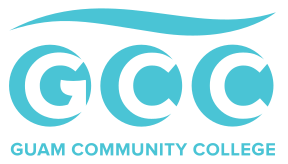Drug & Alcohol Abuse Prevention Program
DAAPP
Guam Community College
ANNUAL DRUG AND ALCOHOL DISCLOSURE AY 2024-2025
Introduction
Guam Community College’s recognition of the adverse effects of drug and alcohol abuse is reflected in its commitment through Policy 175: Tobacco Product, Electronic Cigarette and Betel Nut-free Campus and Policy 410: Standards of Conduct Regarding Drugs and Alcohol – Employees. Guam Community College explicitly prohibits the possession, use, manufacturing, delivery, cultivating, sale or transfer of drugs, alcohol, tobacco, and betel-nut on its campus and at college-related activities.
Impairment through the use of drugs, alcohol, or other substances impairs judgment, affects performance on the job and in the classroom, and may cause physical harm to either the impaired individual or a bystander, or both. Continued abuse of such substances may lead to long-term health complications, adversely affecting the quality of life of the abuser.
Standards of Conduct and Sanctions
In accordance with Policy 175: Tobacco Product, Electronic Cigarette and Betel Nut-free Campus and – Policy 410: Standards of Conduct Regarding Drugs and Alcohol Employees, the unlawful manufacture, distribution, dispensing, possession, or use of a controlled substance is prohibited at Guam Community College. These policies cover standards of conduct found in the Student Handbook and Employee Services website. Enforcement of Federal and Territorial laws shall remain firm and consistent.
Students and employees of Guam Community College are prohibited from being impaired by alcohol or drugs or in possession of illegal drugs or alcohol while on College property or while being a participant in a sanctioned College event. College employees, students, and visitors are subject to appropriate sanctions and/or disciplinary action for violation of this policy.
Students and employees who are found to be in violation may receive disciplinary action along with a referral for substance treatment. Continued use of these prohibited substances may result in suspension, expulsion, or termination of employment as may be covered under Guam law which may result in fines from $100.00 to $100,000.00, imprisonment ranging from 60 days to life, or both.
Conviction of a minor can result in court jurisdiction over the individual until age twenty-one and may result in detention by the Department of Youth Affairs.
Employees and students are subject to school, administrative, and legal action as defined by all federal and local laws as may be applicable.
For students, possible sanctions of a warning, suspension, or expulsion from GCC will be determined through a student disciplinary process. Employees are also subject to local and federal laws.
Disciplinary action against employees may vary depending on their status as defined by the institution. Action taken against an employee may include: termination, suspension, or demotion.
Drug and Alcohol Abuse Treatment Resources and Clinical Services
Free and confidential assistance through the Office of Accommodative Services and Substance Abuse Prevention Committee in Room 2139 or call 671-735-5641, Ext. 5597. On campus medical assistance and referrals for substance abuse services can be obtained through the Health Services Center in Room 5116 in Building 5000 or call 671- 735-5586. Additional information about national and local resources available for drug and alcohol abuse treatment, contact Guam Behavioral Health and Wellness Center at 671-647-5325. For more information, employees can contact the Human Resources Office at Guam Community College at 671-735-5537, Ext. 5536.
To report campus incidences or concerns, students and employees can contact Student Support Services at 671-735-5555, Ext. 5564.
For emergencies, students or employees may call “911” to request immediate emergency services from the Guam Police Department and the Guam Fire Department.
AGENDA ITEMS for DAAPP MEETING
In Feb. 2022
- Introduce the HR representative.
- Define our roles, if possible.
- Go over the input or comments regarding the documents sent out.
- Discuss the following:
- Divide into teams with specific assignments.
- One team to go over the disclosure statement. Find the flaws in it. We may have one statement for GCC. However, it will be divided into 3 areas of responsibility: one for HR for procedures involving employees, another for students under Student Support, and contractors and vendors under Environmental Health and Safety. GCC needs to identify which specific office will be handling the student procedures. Find out what is needed to satisfy the federal government.
- Here’s a hypothetical question: Who handles a situation where a GCC employee is involved with alcohol or drugs in a classroom/program/event setting while going to school at night after hours? Will it be HR or Student Support? Will the standards and the sanctions be the same?
- GCC is mandated by the federal government to ensure, document, and certify on an annual basis that all students receive credit and that all employees receive a copy of GCC’s policies, procedures, and information on resources, sanctions, and health risks on drugs and alcohol. Who is going to be responsible for this? Who will gather all this information? Since this involves employees and students, HR and Admissions will be involved. My suggestion is that this be done online for both students and employees. So, MIS may have to be involved as well. Again, who is going to be in charge of this? Our little team does not have the authority or resources to do all of this.
- Open up for discussion.
- We can begin doing educational/prevention actions while we are sorting things out. If we wait until things are sorted out, months may go by and we will be in violation. If we start doing things now, we will be showing signs of good faith and attempts of compliance.
- Identify who will be on what sub-team or group. Identify who will be the group leader.
- Schedule for next meeting.
- One team looks at substance abuse prevention/education for GCC as a whole. This team will need to work with GBHWC, TOHGE, and OASIS for local resources and training. This should include training, posters, presentations, and referrals. Need to clearly identify who on campus will be conducting the referrals. Also, need to identify who will be doing the educational part.
Substance Abuse Prevention and Suicide Prevention Training
- March 24, 2022 – Forwarding of DEA’s Get Smart About Drugs Newsletter to faculty and staff
- April 5, 2022 – Forwarding of DEA’s Get Smart About Drugs Newsletter to staff and faculty. The topic was Drugs and Sexual Assault
- April 19, 2022 - Campus notification of DEA’s Take Back Rx Drugs Day
- May 19, 2022 – Emailed DEA’s Newsletter to faculty and staff
- July 6, 2022 – Email notice of SAFETalk suicide prevention training coming up
- July 18, 19, 20, & 22, 2022 – Recovery Coaching training on substance abuse held. Open to employees & students
- Sept. 26, 2022 – Webinar on Opioid Abuse prevention held
- Oct. 7, 2022 – Notice of substance abuse prevention training at MPA sent out.
- Oct. 19, 2022 – Emailed Veteran’s Health Care Newsletter on Domestic Violence
- Nov. 3 & 4, 2022 – ASIST suicide prevention training in C Building
- Nov. 4, 2022 – Forwarded to campus community Veteran’s newsletter on Mental Health and Suicide Prevention
- Nov. 17, 2022 – Posting of DEA’s Newsletter on Study: One-Fifth of Young People Have Tried Prescription Drugs OffScript
- April 25, 2024 – Uplift Counseling Services Session on Alcohol and Drug Prevention in Room E 118
- July 26, 2024 – Opioid Overdose Response Training Via Zoom
- August 16, 2024 - Disability Awareness and Sensitivity Training
- August 23, 2024 – 12 PM Raw Coping Power Guam Community College
- Sept. 6, 2024 - Post-Traumatic Stress Disorder (PTSD)
- Sept. 17, 2024 - Suicide Prevention Training for College Staff and Faculty
- August 21 & 28, 2024 - Harm Reduction and Overdose Prevention Education for Students (HOPES) Project
- September 24 - 26, 2024 - Addressing Sexual/Domestic Violence Across the Lifespan from Intervention to Prevention
- September 25-26, 2024 - Guam’s Fifth Annual Behavioral Health and Addictions Virtual Conference
- October 5, 2024 - Family Violence Awareness Community Outreach
- Oct. 5, 2024 - Guam Behavioral Health and Wellness Center Mind/Craft to use various forms of art to develop skills in dealing with stress and trauma.
- October 10, 2024 - Community Awareness, Health, and Wellness Community Outreach at Skinner’s Plaza Park
- October 30, 2024 - Webinar: "Behind the Post: Teen Dating Violence and Technology"
- Nov. 25 & 26, 2024 - Brief Tobacco Nicotine Intervention training for students and employees
- Dec. 5 - Q & A Office Hour: Confidentiality and Privacy training for employees
- Dec. 23, 2024 - TOHGE presentation on substance abuse to Bus Driving Boot Camp IV students
- Dec. 27, 2024 - Guam State Epidemiological Outcomes Workgroup (SEOW) multi-agency workshop in room 1201
- Dec. 30, 2024 - TOHGE presentation on substance abuse to Shipyard Worker Boot Camp students
- Feb. 10, 2025 - TOHGE Presentation at Truck Driving Boot Camp V Sign-in Sheet
- Feb. 17, 2025 - QPR Online suicide prevention training for employees and students.
- Signing of Joint Proclamation and Presentation of Legislative Resolution
- Guam Community College Domestic Violence Outreach
- May 5, 2025 - Understanding ADHD Disorder and the Developing Brain Conference - Hyatt
- May 28, 2025 - Disability Sensitivity and Awareness Training - Guam Community College
- June 16 - 17, 2025 - Strengthening Systems and Services for Victims of Sexual/Domestic Violence Conference - Westin
- June 18, 2025 - Virtual QPR Suicide Prevention - Online
- July 2, 2025 - Bridging Systems: Coordinated Approaches to Adolescent Treatment in Juvenile Justice and Child Welfare - Online
- August 19, 20, and 22, 2025 - Webinar Series: Addressing Human Trafficking in Guam and the Region
- Sept. 4, 2025 - Opioid Prevention by HOPES of Arizona State University - Online
- Sept. 9 & 10, 2025 - Rooted in Resilience: Healing, Thriving, and Preventing Sexual Violence in Island Communities Conference - Westin
- Sept. 23 & 24, 2025 - Creating the Conversations: Shifting from Crisis to Safety and Wellness Conference - Westin
- Sept. 25 and 26, 2025 - 6th Annual Guam Behavioral Health and Addictions Conference - Online
- Sept. 29, 2025 - Ethics and Ethical Decision Making Training - Hyatt
- Oct. 4, 2025 – GCC participated in the Family Violence Awareness Month (FVAM) Community Outreach at Micronesia Mall.
- Oct. 7, 2025 - GCC co-sponsored and held the Silent Witness Ceremony for Victims of Family/Domestic Violence in Building 300.
- Oct. 16, 2025 - GCC held at E Building, from 9:00 am - 2:00 pm, a multi-agency Family Violence Awareness Month (FVAM) Community Outreach for students and employees.
- Sexual Assault and Domestic Violence training for students and employees - Room 3108
Supporting Documents:
Policy 175: GCC As A Tobacco Product, Electronic Cigarette & Betelnut–Free Campus
Biennial Report Guam Community College (10.25.2023)
DAAPP 2
Complying with the Drug-Free Schools and Campuses Regulations
DAAPP 3
Agenda Items for DAAPP Meeting
DAAPP 4
Drug and Alcohol Committee Meeting Minutes (Nov. 18, 2021)
DAAPP 5
Drug and Alcohol Committee Meeting Minutes (Jan. 27, 2022)
DAAPP 6
Drug and Alcohol Committee Meeting Minutes (Feb. 24, 2022)
DAAPP 7
Drug and Alcohol Committee Meeting Minutes (March 24, 2022)
DAAPP 8
Fentanyl Awareness (November 27, 2023)
DAAPP 9
Drug and Alcohol Abuse Prevention Program (November 27 – December 1, 2023)
DAAPP 10
Statistics of Campus Community Notified of GCC's DAAPP
DAAPP 11
Fentanyl Awareness
DAAPP 12
Empowering Treasure Hunters
DAAPP 13
DAAPP Committee Meeting (Feb. 22, 2024)
DAAPP 14
DAAPP Committee Meeting (Feb. 29, 2024)
DAAPP 15
Drug & Alcohol Prevention Disclosure
DAAPP 16
TOHGE Substance Abuse Presentation (Sign-in Sheet)
DAAPP 17
TOHGE Substance Abuse Presentation Sign-in Sheet for 12/30/24
DAAPP 18
DAAPP Committee Meeting Minutes for Oct. 9, 2025


